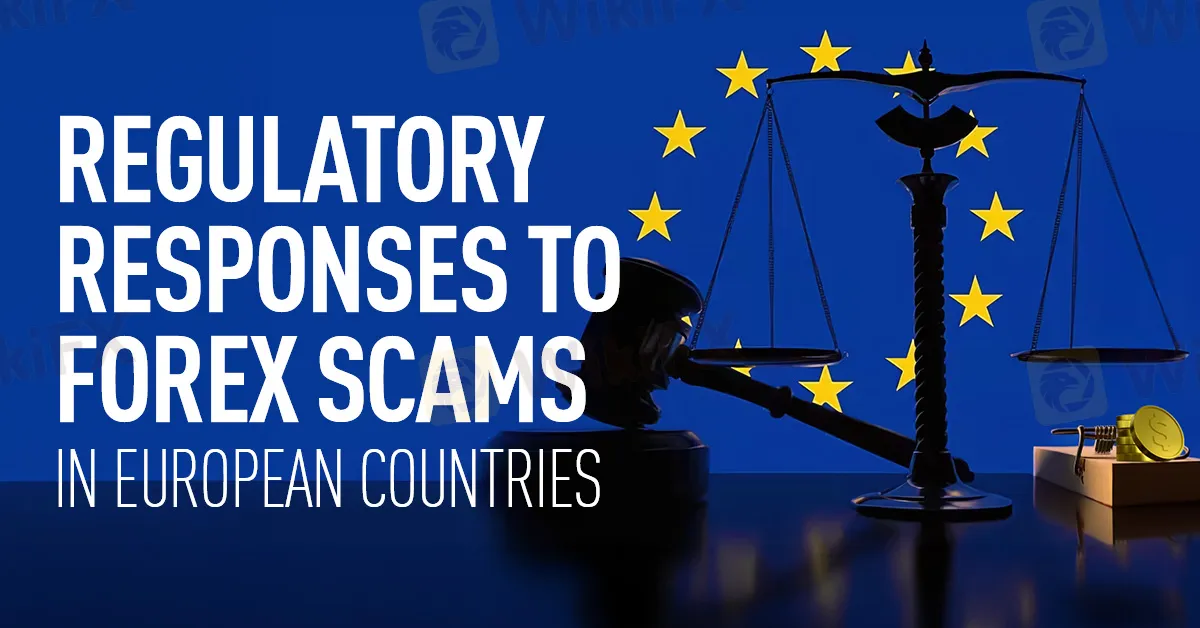简体中文
繁體中文
English
Pусский
日本語
ภาษาไทย
Tiếng Việt
Bahasa Indonesia
Español
हिन्दी
Filippiiniläinen
Français
Deutsch
Português
Türkçe
한국어
العربية
Regulatory Responses to Forex Scams in European Countries
Abstract:As forex investment scams continue to plague Europe, regulatory bodies in various countries are working tirelessly to devise and implement strategies aimed at safeguarding investors. In this article, we explore the diverse regulatory responses to forex scams in European countries, examining the effectiveness of these measures and the challenges faced by regulatory authorities in curbing fraudulent activities.

As forex investment scams continue to plague Europe, regulatory bodies in various countries are working tirelessly to devise and implement strategies aimed at safeguarding investors. In this article, we explore the diverse regulatory responses to forex scams in European countries, examining the effectiveness of these measures and the challenges faced by regulatory authorities in curbing fraudulent activities.
The forex market, by its very nature, operates globally, presenting a unique set of challenges for regulatory bodies. European countries have recognized the need for a coordinated effort to combat cross-border scams, leading to the establishment of regulatory frameworks that aim to protect investors from unscrupulous practices.
One common response among European countries has been the imposition of stringent regulations on forex brokers. Regulatory bodies are tightening their grip on licensing requirements, capital adequacy standards, and conduct regulations for brokers operating within their jurisdictions. By setting higher standards, authorities seek to ensure that only reputable and financially stable brokers can operate, minimizing the risk of fraud.
Collaboration between European countries has become increasingly crucial in the fight against cross-border scams. Authorities are actively sharing information and coordinating efforts to track down and prosecute individuals or entities that engage in fraudulent activities across multiple jurisdictions. This collaborative approach enhances the effectiveness of regulatory actions and serves as a deterrent to potential scammers.
However, challenges persist. The borderless nature of the internet allows scammers to easily sidestep regulatory measures, making it challenging for authorities to enforce regulations consistently. The speed at which fraudulent entities can adapt to changes in regulations also poses a constant threat, requiring regulatory bodies to remain agile in their responses.
One beacon of support for investors navigating the regulatory landscape is WikiFX, a platform dedicated to providing comprehensive information about forex brokers and their regulatory status. By offering a centralized database of broker profiles, WikiFX empowers investors to make informed decisions about the legitimacy and reliability of brokers. Users can access real-time updates on regulatory changes and stay abreast of developments that may impact their investments.
WikiFX serves as a valuable resource for investors seeking clarity on the regulatory environment in European countries and beyond. The platform's commitment to transparency aligns with the objectives of regulatory bodies, providing an additional layer of protection for investors against fraudulent activities.
For investors navigating the regulatory landscape, staying informed is crucial. WikiFX not only provides a wealth of information about brokers but also offers educational resources to enhance users' understanding of regulatory frameworks and how they can contribute to a safer trading environment.
In conclusion, the regulatory responses to forex scams in European countries reflect a concerted effort to protect investors and maintain the integrity of the forex market. While challenges persist, collaborative initiatives and technological tools, such as those offered by WikiFX, are instrumental in empowering investors and bolstering regulatory efforts. As the battle against forex scams continues, a combination of vigilance, education, and effective regulatory measures is key to ensuring a safer trading environment for all.

Disclaimer:
The views in this article only represent the author's personal views, and do not constitute investment advice on this platform. This platform does not guarantee the accuracy, completeness and timeliness of the information in the article, and will not be liable for any loss caused by the use of or reliance on the information in the article.
Read more

Think Scams Won’t Happen to You? That’s Exactly What Scammers Count On
We live in a world where information is everywhere. People are more digitally literate than ever before. Financial education is just a few clicks away. And yet, investment scams are not going away but they’re getting worse. It’s tempting to think that only the gullible fall for these tricks. But that’s far from the truth. Why? Because investment scams don’t target your knowledge. They target your emotions.

Crypto Traders Hit by Scam Using Fake Regulatory Documents, MFSA Cautions
Fraudsters are using MFSA-branded fake documents to scam crypto users, as impersonation of regulators rises globally and document-based scams grow increasingly sophisticated.

Hong Kong Warns of CBEX Group Fraud Amid Nigerian Outrage
Hong Kong's 2024 alert revealed CBEX Group's fraudulent activities, misleading investors in Nigeria and beyond. Many face significant financial losses and withdrawal issues.

AMF and ACPR Warn Against 23 Unauthorized Forex and Crypto Platforms
French regulators have flagged 23 new websites for offering unauthorized Forex and crypto-derivative services.These platforms, which lack the necessary licenses, continue to target local investors with aggressive marketing and unrealistic profit promises. Authorities warn that many of these sites use misleading branding and domain names to appear credible.
WikiFX Broker
Latest News
Think Scams Won’t Happen to You? That’s Exactly What Scammers Count On
Currency Calculator


